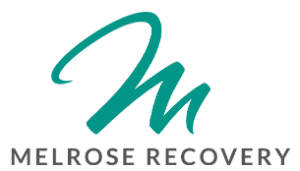Hydroxyzine For Anxiety
Hydroxyzine for Anxiety and Sleep: Uses, Effects, and Considerations

Hydroxyzine: A Versatile Option for Anxiety and Sleep Support
Hydroxyzine For Anxiety- A medication widely recognized for its dual ability to ease anxiety and support better sleep. Often used in the treatment of generalized anxiety disorder and nighttime sleep disturbances, hydroxyzine offers a non-habit-forming alternative to more commonly prescribed sedatives. It is available in several forms, including oral syrup, making it accessible and adaptable for various needs.
As an antihistamine, hydroxyzine hydrochloride is primarily used to treat allergic reactions. However, its sedative and anxiolytic (anti-anxiety) effects also make it effective in managing symptoms related to anxiety and sleep disorders. These properties have made it a valuable option in both mental health and sleep medicine.
Like all medications, hydroxyzine (Sold under brand names Atarax and Vistaril among others) carries potential risks and side effects. For this reason, it should be used under the guidance of a healthcare professional. Understanding how it works, the potential benefits, and necessary precautions can help individuals make well-informed choices about using hydroxyzine as part of their treatment plan.
Consulting with a healthcare provider is essential before starting hydroxyzine—especially for those taking other medications or supplements. Open communication ensures safe, effective use and helps prevent unwanted interactions.
At Melrose Recovery, we understand how crucial it is to address mental health concerns with care and compassion. Our mission is not only to inform but to guide you toward a calmer, healthier future.

What Is Hydroxyzine Hydrochloride? A Closer Look at This Antihistamine Medication
Hydroxyzine hydrochloride is a type of medication classified as an antihistamine. It is most commonly used to treat symptoms associated with allergic reactions, such as itching, hives, and skin rashes. In addition to its antiallergic properties, hydroxyzine also has sedative effects, making it useful for managing anxiety, reducing tension, and assisting with sleep.
This medication works by blocking the action of histamine—a chemical in the body that triggers allergic symptoms. It also acts on the central nervous system, which contributes to its calming and sedative effects.
Hydroxyzine is available in several forms, including tablets, capsules, and oral suspensions. In certain clinical settings, it can also be given through intravenous injection.
By addressing both allergic and anxiety-related symptoms, hydroxyzine serves as a versatile option for patients needing relief from physical discomfort and mental distress.
Hydroxyzine Is For What
Hydroxyzine is a prescription medication that belongs to a class of drugs known as antihistamines. It is used for a variety of purposes:
-
Anxiety relief: Helps manage anxiety and tension related to stress, nervousness, or emotional discomfort.
-
Allergic reactions: Treats symptoms of allergic skin conditions such as hives, itching, and dermatitis.
-
Sedation: Used alone or with other medications to promote relaxation or sleep before and after surgery.
-
Nausea and vomiting: Can help control these symptoms in certain situations.
How it works: Hydroxyzine blocks histamine, a chemical responsible for allergic symptoms. It also reduces brain activity, which contributes to its calming and sedative effects.
Important Notes:
-
Hydroxyzine requires a prescription.
-
It is not intended for long-term anxiety treatment.
-
Common side effects include drowsiness and dry mouth.
-
Always consult a healthcare provider for proper dosage and to check for interactions with other medications.
Hydroxyzine Types and Dosages: What You Need to Know
Hydroxyzine is available in both oral and injectable forms, with the dosage tailored to the condition being treated. It comes in several formats to accommodate individual needs and preferences.
Oral Hydroxyzine
Hydroxyzine can be taken as:
-
Tablets or capsules in strengths of 10 mg, 25 mg, and 50 mg
-
Liquid forms, such as syrup or suspension, which are ideal for children or those who have difficulty swallowing pills
When using liquid hydroxyzine, accurate measuring with a proper dosing device is essential to ensure safe and effective use.
Injectable Hydroxyzine
-
Administered intramuscularly (IM), typically for a faster onset of action or for sedation
-
Commonly used in hospital or surgical settings, often in combination with anesthesia
Hydroxyzine General Dosage Guidelines
-
Anxiety (Adults): Up to 400 mg per day, divided into smaller doses
-
Allergic reactions (Adults): 25–100 mg taken 3 to 4 times daily
-
Children: Dosages vary based on age and body weight—pediatric dosing should always be determined by a healthcare provider
-
Sedation or pre-anesthesia: Higher doses may be used under medical supervision
-
Itching (Pruritus): 25–50 mg taken 3 to 4 times daily
Important Usage Tips
-
Always follow the exact dosage instructions provided by your healthcare provider or listed on your prescription label
-
Do not double up on missed doses—take the next scheduled dose as directed
-
Inform your provider about any other medications or supplements you’re taking to avoid interactions or side effects
Hydroxyzine oral tablets are often an effective treatment for anxiety symptoms, offering a non-addictive option for relief when used correctly and under medical supervision.
Hydroxyzine Side Effects: What to Watch For
Like all medications, hydroxyzine can cause side effects, which may vary in severity and duration from person to person. While many people tolerate hydroxyzine well, it’s important to be aware of potential side effects—especially serious ones that require immediate medical attention, such as severe dizziness, chest pain, or irregular heartbeat.
Hydroxyzine Short-Term Side Effects
These are the most commonly reported side effects that may occur shortly after starting hydroxyzine:
-
Drowsiness or Sedation:
One of the most common effects, drowsiness is often the reason hydroxyzine is used to treat anxiety or as a sleep aid. -
Dry Mouth:
A frequent and generally mild side effect. Staying hydrated can help manage this. -
Blurred Vision:
Some people experience temporary vision changes, particularly early in treatment. -
Constipation:
Gastrointestinal discomfort such as constipation may occur. -
Urinary Retention:
Difficulty urinating or feeling unable to fully empty the bladder may be experienced. -
Dizziness:
Lightheadedness, especially when standing up quickly, is possible. This may require dose adjustments if it becomes severe or persistent. -
Headache:
Mild to moderate headaches have been reported in some individuals.
Hydroxyzine Long-Term or Serious Risks
-
QT Prolongation:
Hydroxyzine can, in rare cases, affect the heart’s electrical rhythm, especially in people with pre-existing heart conditions such as heart failure. This condition, known as QT prolongation, can lead to serious and potentially life-threatening heart arrhythmias and, in very rare instances, sudden cardiac death.
Hydroxyzine Precautions and Special Considerations
-
Heart Conditions:
People with heart problems should use hydroxyzine cautiously and only under close medical supervision. -
Kidney or Liver Issues:
These organs are responsible for processing the medication, so dosage adjustments may be needed for those with impaired function. -
Children and Older Adults:
Dosing must be carefully managed in these groups to avoid over-sedation or other complications. -
Other Medications:
Always inform your doctor or pharmacist of all prescription, over-the-counter, herbal, or dietary supplements you’re taking, as drug interactions can increase the risk of side effects. -
Liquid Forms:
If using hydroxyzine syrup or suspension, store it properly and use a calibrated measuring device to ensure accurate dosing.
Hydroxyzine is also prescribed for allergic reactions—both mild and severe—but it’s crucial to use it under medical guidance, particularly if you have existing health concerns. Consulting a healthcare provider ensures safe and effective use, tailored to your individual health needs.
Long-Term Side Effects of Hydroxyzine: What You Should Know
While hydroxyzine is generally safe for short-term use, prolonged use may lead to a number of long-term side effects. It’s important to understand these risks and use the medication under proper medical supervision.
1. Severe Drowsiness and Sedation
Persistent drowsiness may continue with long-term use, which can affect daily activities and alertness.
2. Tolerance
Over time, some individuals may develop tolerance to hydroxyzine. This means the medication becomes less effective, requiring higher doses to achieve the same results—something that should only be adjusted by a healthcare provider.
3. Dependence
Although hydroxyzine is not considered habit-forming like benzodiazepines, physical dependence may occur with long-term use. Abruptly stopping the medication can lead to withdrawal symptoms in some individuals.
4. Cognitive Impairment
Extended use of hydroxyzine may affect cognitive functions, such as memory, attention, and reaction time, especially in older adults.
5. Weight Gain
Weight gain has been reported in some people taking hydroxyzine over an extended period.
6. Cardiac Effects
In rare cases, long-term hydroxyzine use has been linked to QT interval prolongation, a condition that can cause irregular heart rhythms and, in serious cases, lead to cardiac complications such as:
-
Irregular heartbeat
-
Severe dizziness
-
Rare skin reactions or rashes
These effects may be more likely in individuals with pre-existing heart conditions.
7. Liver Function Concerns
Long-term therapy may affect liver function, so regular monitoring may be recommended for individuals on hydroxyzine for extended periods.
8. Allergic Skin Reactions
Some individuals may develop chronic urticaria (persistent hives) or severe skin reactions, especially if doses are taken incorrectly or in excess.
Important Safety Notes
-
Hydroxyzine injections, often used to manage pain or anxiety in medical settings, must be administered correctly. Taking more than prescribed or doubling up on missed doses increases the risk of adverse reactions.
-
Always use hydroxyzine as directed, and notify your healthcare provider immediately if you experience symptoms like rash, chest pain, rapid heartbeat, or severe dizziness.
Hydroxyzine is an effective medication when used appropriately, but long-term use requires careful monitoring. If you have concerns about continued use, discuss alternative treatment options with your doctor.
How Long Does Hydroxyzine Stay in Your System?
The amount of time a drug remains active in the body is often measured by its half-life—the time it takes for the concentration of the drug in the bloodstream to decrease by half. For hydroxyzine, this duration can vary depending on the specific formulation and individual health factors.
Hydroxyzine Hydrochloride (Immediate-Release)
-
Has a half-life of approximately 20 to 25 hours in healthy adults.
-
Due to its shorter duration of action, it is typically taken several times a day to maintain consistent therapeutic effects.
Hydroxyzine Pamoate (Extended-Release)
-
Features a longer half-life compared to hydroxyzine hydrochloride.
-
Designed for longer-lasting relief, this form allows for less frequent dosing, often just once or twice daily.
What Affects How Long Hydroxyzine Stays in the Body?
The rate at which hydroxyzine is eliminated can be influenced by several personal and medical factors, including:
-
Liver and kidney function
-
Age and body weight
-
Overall health status
-
Concurrent use of other medications or substances that may affect drug metabolism
Understanding how long hydroxyzine stays in your system is important for safe and effective use. Always follow your healthcare provider’s instructions, especially if you have existing medical conditions or are taking other medications.
Alcohol Use and Hydroxyzine: A Risky Combination
Drinking alcohol while taking hydroxyzine is strongly discouraged. Both substances have sedative effects, and using them together can intensify side effects such as:
-
Excessive drowsiness
-
Dizziness
-
Impaired thinking and coordination
More importantly, combining alcohol with hydroxyzine may increase the risk of central nervous system (CNS) depression and QT interval prolongation, a serious heart rhythm condition.
While hydroxyzine is effective in managing anxiety, it should not be taken with alcohol to avoid dangerous interactions and health risks. Always follow your doctor’s guidance when using this medication.
Is It Safe to Take Hydroxyzine During Pregnancy? – Hydroxyzine For Anxiety
Before taking any medication during pregnancy—including hydroxyzine—it’s crucial to consult your healthcare provider. Hydroxyzine is sometimes prescribed during pregnancy and is generally considered safe when used under medical supervision. However, there may be potential risks, particularly during the first trimester, so a doctor’s guidance is essential.
Your healthcare provider will evaluate your specific needs, weigh the potential benefits and risks, and determine whether hydroxyzine is appropriate for you. In some cases, they may suggest alternative treatments or non-medication strategies to manage your symptoms safely.
Hydroxyzine works by affecting certain chemicals in the brain and is commonly used to treat anxiety and allergies. It can pass into breast milk, though usually in small amounts. It’s often used for short-term treatment, such as before medical procedures, and can interact with other medications—another reason professional oversight is important.
Can You Overdose on Hydroxyzine? – Hydroxyzine For Anxiety
Yes, it is possible to overdose on hydroxyzine. Taking too much can cause symptoms such as drowsiness, dizziness, blurred vision, dry mouth, difficulty urinating, confusion, hallucinations, seizures, and in severe cases, coma or even death. If you experience severe or unusual symptoms after taking hydroxyzine, seek medical attention immediately. Be aware that combining hydroxyzine with other central nervous system (CNS) depressants can increase the risk of overdose and impaired awareness.
Is Hydroxyzine Addictive? – Hydroxyzine For Anxiety
Hydroxyzine is generally not considered addictive when used as prescribed for conditions like anxiety or itching. However, misuse—such as taking larger doses or using it more frequently than directed—can lead to habit-forming behavior. It’s important to follow your healthcare provider’s instructions carefully and avoid exceeding the recommended dose. If you have concerns about dependence or addiction, discuss them openly with your healthcare provider.
While hydroxyzine abuse is uncommon and addiction is rare, withdrawal symptoms may occur in some cases.
Hydroxyzine and Drug Interactions with CNS Depressants
Hydroxyzine can interact with various medications, which may cause unwanted side effects or reduce the effectiveness of either drug. Key interactions to be aware of include:
-
Central Nervous System (CNS) Depressants: Combining hydroxyzine with other sedatives—such as benzodiazepines, opioids, or alcohol—can increase risks of excessive sedation, drowsiness, and respiratory depression.
-
Anticholinergic Drugs: Since hydroxyzine has anticholinergic effects, using it alongside other anticholinergic medications (like certain antidepressants, antihistamines, or drugs for overactive bladder) may worsen side effects such as dry mouth, blurred vision, constipation, and urinary retention.
-
Anticholinesterase Inhibitors: These medications, used for conditions like myasthenia gravis or Alzheimer’s disease, may have their effects amplified by hydroxyzine, potentially increasing cholinergic side effects.
-
CNS Stimulants: Taking hydroxyzine with stimulants (e.g., amphetamines, methylphenidate) might lessen stimulant effects or heighten risks like increased heart rate and blood pressure.
-
QT-Prolonging Drugs: Hydroxyzine can prolong the QT interval on an ECG. Using it with other QT-prolonging drugs (such as some antibiotics, antipsychotics, or antiarrhythmics) may raise the chance of abnormal heart rhythms.
Additionally, if a vasopressor is needed, patients on hydroxyzine should use alternatives like norepinephrine or metaraminol instead of epinephrine.
Always inform your healthcare provider about all medications, supplements, and herbal products you take before starting hydroxyzine or any new treatment. This helps ensure safe use and avoids harmful drug interactions. Your provider will review your history and medications to determine if hydroxyzine is right for you.
How Is Hydroxyzine Used for Anxiety and Sleep? – Hydroxyzine For Anxiety
Hydroxyzine is sometimes prescribed to manage anxiety and sleep problems because of its sedative effects. Here’s how it’s commonly used for these conditions:
Anxiety:
Hydroxyzine can help relieve anxiety symptoms and is often used as an add-on treatment when other medications, like benzodiazepines or SSRIs, aren’t suitable or preferred. The usual dose for anxiety ranges from 25 to 100 mg, taken several times a day. The exact amount depends on how a person responds and the severity of their symptoms. As a first-generation antihistamine, hydroxyzine’s calming effects are linked to its ability to cause sedation.
Sleep Disorders:
Hydroxyzine may also be used to treat sleep issues such as insomnia. Its sedative properties help promote relaxation and make it easier to fall asleep. For sleep-related concerns, the typical dose is 25 to 50 mg taken at bedtime. The timing and dosage may vary depending on the individual’s needs. Taking hydroxyzine just before bed helps maximize its sleep-inducing effects.
When treating anxiety, hydroxyzine is often given in divided doses throughout the day. Be sure to inform your doctor if you’re taking any medications that affect histamine activity, as they might suggest other FDA-approved sedating options.
Benefits of Hydroxyzine for Generalized Anxiety Disorder (GAD) – Hydroxyzine For Anxiety
Hydroxyzine, an antihistamine with anxiolytic (anxiety-reducing) properties, is sometimes prescribed to help manage various anxiety-related conditions, including Generalized Anxiety Disorder (GAD). Below are the key benefits associated with its use:
1. Anxiety Relief
-
Calming Effect: Hydroxyzine works by blocking histamine receptors, producing a sedative effect on the central nervous system that helps reduce feelings of anxiety.
-
Effective for GAD: It can provide relief from the persistent worry, tension, and physical symptoms associated with Generalized Anxiety Disorder.
2. Non-Habit Forming
Unlike benzodiazepines, hydroxyzine does not carry a high risk of dependency or withdrawal, making it a potential option for long-term anxiety management.
3. Relief of Physical Symptoms
-
Muscle Tension & Restlessness: Hydroxyzine may help reduce the physical discomfort often associated with anxiety, such as muscle tightness, restlessness, and an elevated heart rate.
4. Versatility
-
Wide Range of Use: It’s sometimes prescribed for other anxiety-related conditions, such as social anxiety disorder, panic disorder, and specific phobias.
5. Adjunctive Treatment Option
Hydroxyzine can be used alongside other medications or therapies to enhance the overall effectiveness of an anxiety treatment plan.
6. Lower Risk of Abuse
Due to its non-addictive profile, hydroxyzine presents a lower risk of misuse compared to many other anti-anxiety medications.
7. Better Sleep Quality
Its sedative properties may help improve sleep, especially for individuals whose anxiety contributes to insomnia or disrupted rest.
8. Fast-Acting Relief
Hydroxyzine typically acts quickly, offering prompt symptom relief during episodes of acute anxiety.
Note: Individual responses to hydroxyzine can vary. A healthcare provider should assess whether it’s the right fit based on medical history, severity of symptoms, and other medications being taken.
Benefits of Hydroxyzine for Sleep – Hydroxyzine For Anxiety
Hydroxyzine is sometimes used as a sleep aid because of its sedative and calming properties. Here’s how it may benefit those struggling with sleep disturbances:
1. Sedative Effects
Hydroxyzine promotes drowsiness by acting on the central nervous system, which can help initiate and maintain sleep.
2. Reduces Anxiety-Related Insomnia
Its ability to reduce anxiety can help calm the mind and body, making it easier to fall and stay asleep.
3. Non-Benzodiazepine Alternative
It provides a non-habit-forming option for those looking to avoid benzodiazepines or other traditional sleep medications.
4. Improved Sleep Onset
Because it acts relatively quickly, hydroxyzine can reduce the time it takes to fall asleep, particularly when racing thoughts or restlessness are present.
5. Adjunctive Role
Hydroxyzine can be used in combination with behavioral therapies, sleep hygiene practices, or other non-pharmacological approaches for a comprehensive approach to insomnia.
6. Relief from Itching or Discomfort
As an antihistamine, hydroxyzine can also reduce itching or allergic reactions that may otherwise interfere with sleep.
Important: Hydroxyzine is not typically recommended for treating chronic sleep disorders like obstructive sleep apnea or restless legs syndrome. Always consult a healthcare provider to evaluate if it’s appropriate for your sleep concerns.
Understanding the Connection Between Anxiety and Sleep Disorders – Hydroxyzine For Anxiety
Anxiety and sleep problems often go hand-in-hand. Here’s a brief overview of how these conditions relate:
Sleep Disorders
These conditions affect the ability to fall asleep, stay asleep, or achieve restful sleep. Examples include:
-
Insomnia
-
Restless Legs Syndrome (RLS)
-
Sleep apnea
Anxiety
Anxiety disorders involve persistent, excessive worry and fear. These feelings can disrupt sleep patterns and contribute to conditions like insomnia.
Both conditions can significantly impair daily functioning, and treating one often helps alleviate the other.
Responsible Use of Hydroxyzine – Hydroxyzine For Anxiety
To use hydroxyzine safely and effectively, follow these guidelines:
-
Take As Prescribed: Follow your healthcare provider’s dosing instructions carefully.
-
Avoid Alcohol: Combining alcohol with hydroxyzine can increase drowsiness and may lead to serious side effects.
-
Monitor Side Effects: Report any dizziness, irregular heartbeat, or severe drowsiness to your doctor.
-
Check for Drug Interactions: Inform your provider of all medications you’re taking to prevent harmful interactions.
-
Don’t Drive or Operate Machinery: Hydroxyzine may impair alertness and coordination.
-
Consult Before Stopping: Talk to your doctor before stopping treatment, even if symptoms improve.
Patients with heart conditions or those who experience severe nausea or skin reactions should notify their provider immediately.
Monitoring and Adjusting Treatment – Hydroxyzine For Anxiety
Regular check-ins with your provider are essential when taking hydroxyzine. They can help:
-
Track your progress
-
Adjust your dosage
-
Identify any potential side effects
-
Explore alternative treatment options if necessary
Alternative Treatments for Anxiety and Sleep – Hydroxyzine For Anxiety
If hydroxyzine isn’t right for you, several other options are available:
Therapy-Based Treatments
-
Cognitive-Behavioral Therapy (CBT): Highly effective for anxiety and insomnia.
-
Mindfulness Techniques: Meditation, deep breathing, and progressive muscle relaxation.
Other Treatment Levels
-
Partial Hospitalization Program (PHP): Intensive day programs with structured therapy.
-
Intensive Outpatient Program (IOP): Multiple therapy sessions weekly while maintaining daily activities.
-
Inpatient Treatment: 24/7 support for individuals experiencing severe anxiety or crisis.
Medication Alternatives
-
SSRIs (e.g., sertraline, fluoxetine)
-
SNRIs (e.g., venlafaxine)
-
Beta-blockers
-
Buspirone
Work with a mental health professional to determine which approach is most appropriate for your specific needs.
Insurance Coverage for Anxiety Treatment – Hydroxyzine For Anxiety
Most insurance plans do cover treatment for anxiety and related mental health conditions. Coverage specifics depend on the plan, so it’s best to contact your provider for detailed information.
Conclusion – Hydroxyzine For Anxiety
Hydroxyzine offers a practical option for managing anxiety and improving sleep, especially when concerns about dependency or tolerance limit the use of other medications. However, like all medications, it comes with potential side effects and should be used under medical supervision. With the right care plan in place, hydroxyzine can be an effective tool in supporting mental health and restful sleep.
Need Support? We’re Here to Help
At Melrose Recovery, we provide compassionate, evidence-based treatment for anxiety, sleep issues, and substance use. As an in-network provider, we accept most major insurance plans including:
-
Aetna
-
Beacon
-
Blue Cross
-
Cigna
-
Horizon
-
MultiPlan
-
And many more
Call us today at 714-442-7782 to speak with a caring professional about your treatment options. You’re not alone—help is just a phone call away.
Customized Treatment Plan
Yes, You Can Have Fun in Rehab
It’s a common misconception that rehab is boring. Granted, you participate in psychotherapy and undergo treatment for a chronic disease. However, in the process, you can still enjoy yourself. You work with peers who are also going through rehab.
You live together at the facility, participate in programs, and learn new skills. There are also social gatherings that let you get to know others. Not only are these social situations fun, but they also promote the formation of healthy self-esteem and interactions. For many residents, doing so is a new concept.
So far in life, you’ve likely often incorporated drugs or alcohol in social situations. Now, you unlearn these habits and develop healthy ways of relating to others. This isn’t something you learn in an educational setting but must try hands-on. Not surprisingly, addiction specialists provide you with opportunities for doing exactly that.
If this sounds like the kinds of addiction therapy services you need right now, there’s hope. The caring specialists at Melrose Recovery want to help you overcome a drug or alcohol problem. Contact Melrose Recovery of Los Angeles for help today by calling (714) 442-7782.

We Work With Major Insurances





Get In Touch
info@melroserecovery.com
501 North Mariposa Ave, Los Angeles, CA 90004







